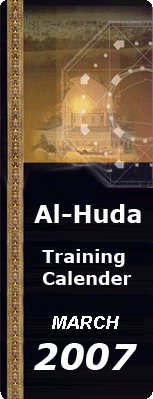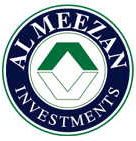The second World Islamic Economic Forum (WIEF) concluded its three - day deliberations on 7 November, 2006 in Islamabad on a positive note of establishing a free trade regime amongst the Islamic States and promoting Islamic banking, finance and insurance.
“Unleashing the Potential of Emerging Markets” was one of themes focused by the 250 foreign and 300 local business delegates who attended the forum. Among the many people present were the Malaysian PM, PM and President of Pakistan, President of the Islamic Development Bank (IDB) and many others.
WIEF is the successor to OIC Business Forum that first appeared on the scene in 2004. It was subsequently renamed WIEF and its third meeting will be held in Kuala Lumpur from 7th to 9th May, 2007. In fact Malaysia has a lot to offer in terms of kick starting an economic renaissance in the Islamic World, given the country’s successful experience.
However, there are some questions that need to be answered and some realities that have to be understood before the process can actually be used as a tool to bring about an economic renaissance.
Economic challenges
It is not difficult to define economic challenges faced by the Islamic World. The situation exists on ground and hence the challenges are real and quantifiable. But facing it because of its diversity and vastness makes it somewhat formidable and that is the real challenge for political leaders, technocrats, businessmen, academics and the people. It is worth mentioning that OIC has 57 member states. Spread from Indonesia to Morocco, the total population comes to about 1.25 billion people. 70 per cent of global energy resources are located within the Islamic States, mostly concentrated in the ME, Gulf and Central Asian States.
However, despite being rich in resources, the overall region has very little in real economic terms and there are very few Muslim states that can be classified globally competitive. Conspicuous among them are Malaysia and the tiny Gulf states which are beginning to show sparks of entrepreneurship.
The 57 OIC member states collectively produce less than 5 per cent of global GDP that is valued at $42 trillion. Their GDP is less than the annual GDP produced by Germany whose population alone is less than one - fifteenth of the population in Muslim countries. Moreover, of these states, 31 are classified as least developed and low-income countries (LDCs) and not even a single is considered as developed or industrialised. Of the 26 remaining states most are developing and a few of them are emerging countries economically.
Moreover, intra-Islamic states trade is around 13 per cent and their share in global trade is 6-7 per cent. 39 per cent of 1.25 billion people or 480 million people live below the poverty line.
Most Islamic countries that faced the after effects of the neglect of colonial powers soon after WW-II have really measured up to the challenge of improving governance, giving impetus to economic growth and development, developing infrastructure and human resources and alleviating poverty.
The post-WW II period, spread over six decades, has been a period of varying experience of development among Islamic states and in fact had a positive impact on Muslim states located in the region. Malaysia is the finest example. The country under the leadership of its former PM Mahateer Muhammad scaled many heights of economic and human resource development and good governance. It is now moving ahead under the leadership PM Badawi.
Indonesia did make strides but its economic and human resource potential is yet to be fully developed. The political turmoil of the 60s and then again in the 90s sapped quite a bit of its energy and inhibited to optimise the gains that the country would have made otherwise.
In South Asia, Pakistan and Bangladesh - the two large Islamic states are struggling to have stable systems of governance and achieve sustainable high economic growth with improved prospects. They fall in the category of developing countries and their economic challenges are no less different from those of any developing country.
The Gulf and ME, on the other hand, are blessed with rich oil resources and have developed infrastructure with comparatively better per capita income and surplus budgets but certainly their human resource and non-oil industrial output have been wanting for improvement.
The overall African continent has financial resource constraints, problems of governance and economic development and the Islamic states are no exception. In fact, that region is the worst hit.
The economic challenge for the Islamic World is really formidable because of its diversity and vastness. There are no easy solutions. The only ray of hope is that the more we talk about it, the greater are the chances of creating awareness about improving in the global economic village that is highly demanding and competitive.
Global economic challenge
Having scanned economic challenges faced by the Islamic World, one should look for solutions. This is what was exactly done during the WIEF’s meeting in Islamabad. But understanding of economic challenges and suggested solutions to resolve it world remain incomplete and an effort in isolation unless the challenge was viewed in a global context. This goal post will give correct orientation to find practical solutions. There are different aspects of the global economy but a few of them - competitiveness, value addition, investment, harnessing new methodologies (for industrial products) and new technologies (for management) - are most conspicuous.
They, in them, encompass many facets of development. They are very demanding at the individual and collective level and require survival of the fittest.
The global economic challenge is basically a challenge of multi-nationals and of the corporate sector that flourished in rich industrialised countries during the post WW-II period on the US model. It is considered a reminiscent of the colonial era and of a mindset that considered state - managed economic development the ultimate solution to achieve economic growth, equitable distribution of wealth, employment and basic necessities for all.
The globalisation of economy during the past more than one and half decade has made adoption of corporate culture a must for economic growth. Its adoption by China, India and Pakistan and many other countries around the world has really made it the key to economic success.
Search for solutions
PM Badewi pin-pointed the solution to economic challenge: “to break the vicious cycle of poverty in Muslim nations, we need to develop infrastructure, telecommunication, skilled and efficient human resources to strengthen our economics”. The measures needed to adopt include, “establishing good governance and bridging the gap between rural and urban societies”.
FDI plays a crucial role in solving these issues but then again the initiative to attract FDI has to come from the national governments. Investors, even if they were rich Muslim investors would hardly opt to invest in for reasons of faith if a country does not meet the specific meet criteria for investment.
Conclusion
The adoption of the declaration at the end of the WIEF to accelerate sub - regional co-operation leading to establishment of IFTA (Islamic Free Trade Area) is the first step in the right direction. Commitment of promoting Islamic banking, finance and insurance is also a right approach.
A lot of hard work and vision is required to translate the declaration with something real and concrete. It is generally said that where there is a will, there is a way.
This declaration is the real test of will of the entire bloc and what now remains to be seen is will the leaders be able to carve out a place in the highly competitive global economy. One should stay optimistic about the outcome.






